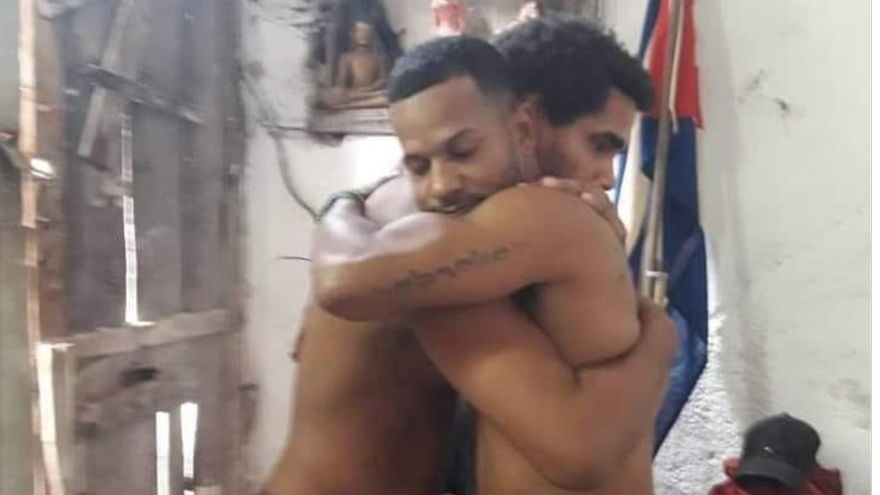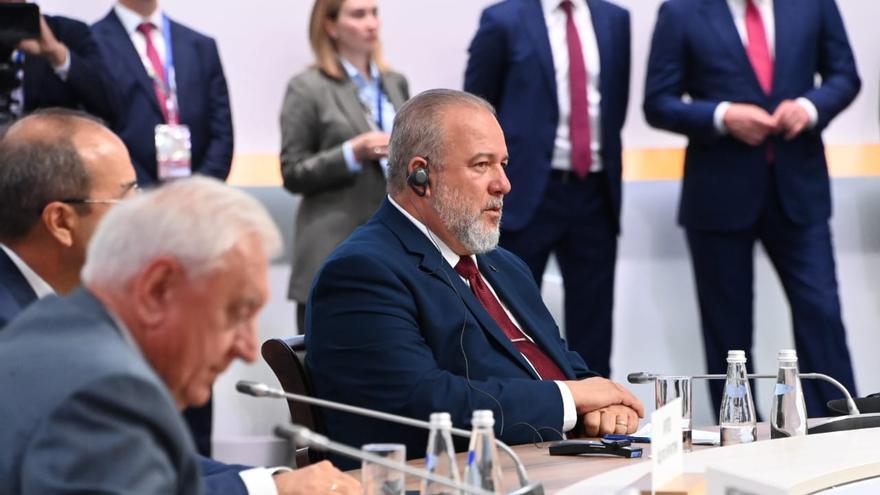The loss of almost two million inhabitants since 2022 places the Island in “refugee crisis” figures

![]() 14ymedio, Juan Palop, Havana, July 22, 2024 — The prestigious Cuban economist and demographer Juan Carlos Albizu-Campos warns in an interview with EFE that statistics about his country show it to be an “unreformable” system in the midst of a “humanitarian crisis” that is progressively approaching “implosion.” Albizu-Campos, who has just concluded a study that estimates that Cuba lost 18% of its population between 2022 and 2023, mainly due to migration, sees warning signs in many other indicators, such as the increase in child poverty, the rise in maternal mortality, the fall in life expectancy and the upturn in pregnancies among adolescents.
14ymedio, Juan Palop, Havana, July 22, 2024 — The prestigious Cuban economist and demographer Juan Carlos Albizu-Campos warns in an interview with EFE that statistics about his country show it to be an “unreformable” system in the midst of a “humanitarian crisis” that is progressively approaching “implosion.” Albizu-Campos, who has just concluded a study that estimates that Cuba lost 18% of its population between 2022 and 2023, mainly due to migration, sees warning signs in many other indicators, such as the increase in child poverty, the rise in maternal mortality, the fall in life expectancy and the upturn in pregnancies among adolescents.
“There is an emergency situation that is beyond a health emergency, it is a humanitarian crisis,” says this expert, who believes that the situation “is serious and is getting closer to the point of implosion.”
“There is an emergency situation that is beyond a health emergency, it is a humanitarian crisis”
In the opinion of this expert from the Christian Center for Reflection and Dialogue (CCRD), the loss of almost two million inhabitants since 2022, out of a population of 10.5 million, places the Island in “refugee crisis” figures.
Last Friday, Juan Carlos Alfonso, first deputy head of the National Bureau of Statistics and Information (ONEI), acknowledged that between 2020 and 2023 there was a 10% drop in the number of residents on the Island and that “fewer than 10 million” people currently live here. continue reading
The pandemic, the tightening of the U.S. sanctions and failed economic and monetary policies in recent years have aggravated the structural problems of the Cuban economy, generating shortages of basics (food, medicines, fuel), daily blackouts, galloping inflation and an unprecedented migratory exodus.
“The insistence on reforming the unreformable has eroded the metabolism of the system and is taking it to a point of no return,” concludes Albizu-Campos, who believes that “the model is its own obstacle.”
This context includes a fall in life expectancy of seven years between 2011 and 2021, and the recent data published by the United Nations Children’s Fund (UNICEF), which points out that 42% of children between 0 and 5 years old in Cuba suffer from severe or moderate food poverty, both forms of malnutrition.
He also points out that maternal mortality has rebounded to the levels of 1935-1940, that adolescent pregnancies currently account for 18% of the total – after the reduction at the beginning of the century – and that infant mortality, which fell below 4 per thousand between 2013 and 2018, now exceeds 7 per thousand.
“The insistence on reforming the irreformable has eroded the metabolism of the system and is leading it to a point of no return
Albizu-Campos emphasizes the widening of the gap in different indicators (child mortality, life expectancy, income) between whites and non-whites, especially blacks, reversing the advances of the first decades after the triumph of the Revolution.
This year Albizu-Campos published a study in graphic form with researcher Sergio Díaz-Briquets for the International University of Florida under the title Systemic Failure and Demographic Consequences: The Perfect Storm of Cuba.
The expert shows Cuba in a “polycrisis,” a cascade of crises that overlap and act in a combined way” which casts Cuba as the country that has fallen back the most in the Human Development Index (HDI) of the United Nations Development Program (UNDP).
The Island went from 51st place in 2007 to 73rd ten years later, an abrupt fall that continued to sharpen in recent years to place it currently in 85th place on this list.
“We are still in the high (HDI) band, but we were approaching the very high band. Now the band we are approaching is the middle one,” says Albizu-Campos, who estimates that “if current conditions” are maintained, Cuba could fall into that area in “between five and ten years.”
The Island went from 51st place in 2007 to 73rd ten years later, an abrupt fall that continued to become acute in recent years
He also foresees other challenges for the coming years. On the one hand, the economic departure from the country of 1.79 million people between 2022 and 2023 had a clear socioeconomic profile: 57% women, 77% between 15 and 59 years old with a certain economic capacity. Most are in “working and reproductive age,” and that, he adds, “has an impact.”
It is predicted that it will also be combined with the retirement in the coming years of the largest generation in Cuba, which will increase the pressure on public accounts, which will have to spend more on pensions when there are already difficulties and large deficits accumulate.
Translated by Regina Anavy
____________
COLLABORATE WITH OUR WORK: The 14ymedio team is committed to practicing serious journalism that reflects Cuba’s reality in all its depth. Thank you for joining us on this long journey. We invite you to continue supporting us by becoming a member of 14ymedio now. Together we can continue transforming journalism in Cuba.


